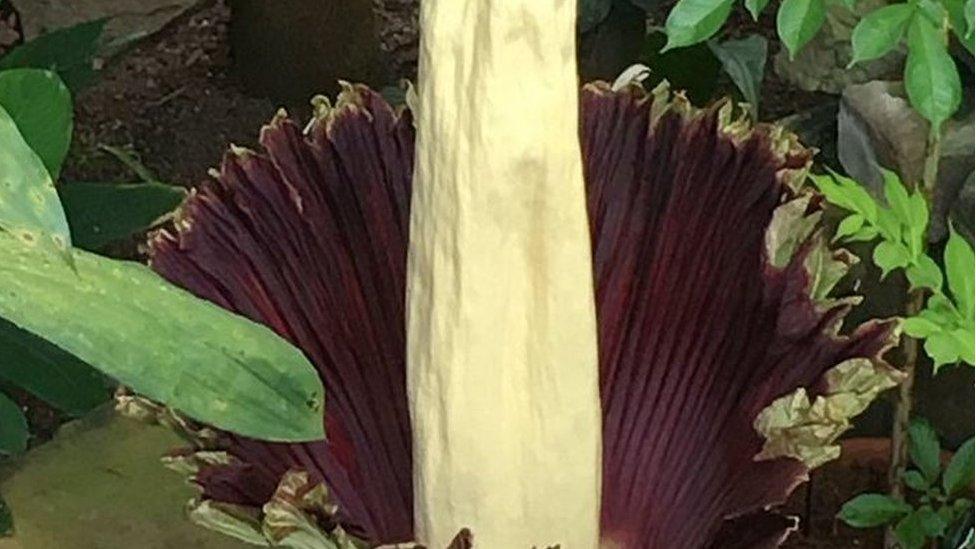Cambridge moonflower: Webcam watch for the 'rare' bloom
- Published
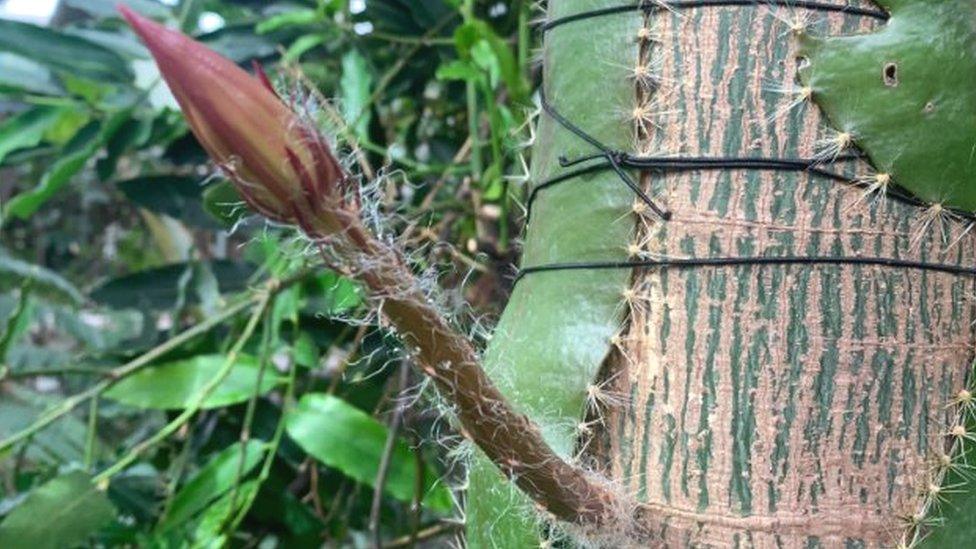
A webcam has been installed to capture the moment the moonflower blooms
A live webcam has been set up to capture a rare Amazonian cactus which is expected to bloom "imminently".
The moonflower, or Strophocactus wittii, is part of the collection at Cambridge University Botanic Garden.
The plant is "very rare" in captivity and when it bloomed in February 2021, it was believed to be the first time one had ever flowered in the United Kingdom.
The flower usually comes out overnight and only lasts for 12 hours.
When it first flowered, it attracted the attention of about 500,000 people from around the world, who tuned in to join the long wait during lockdown.
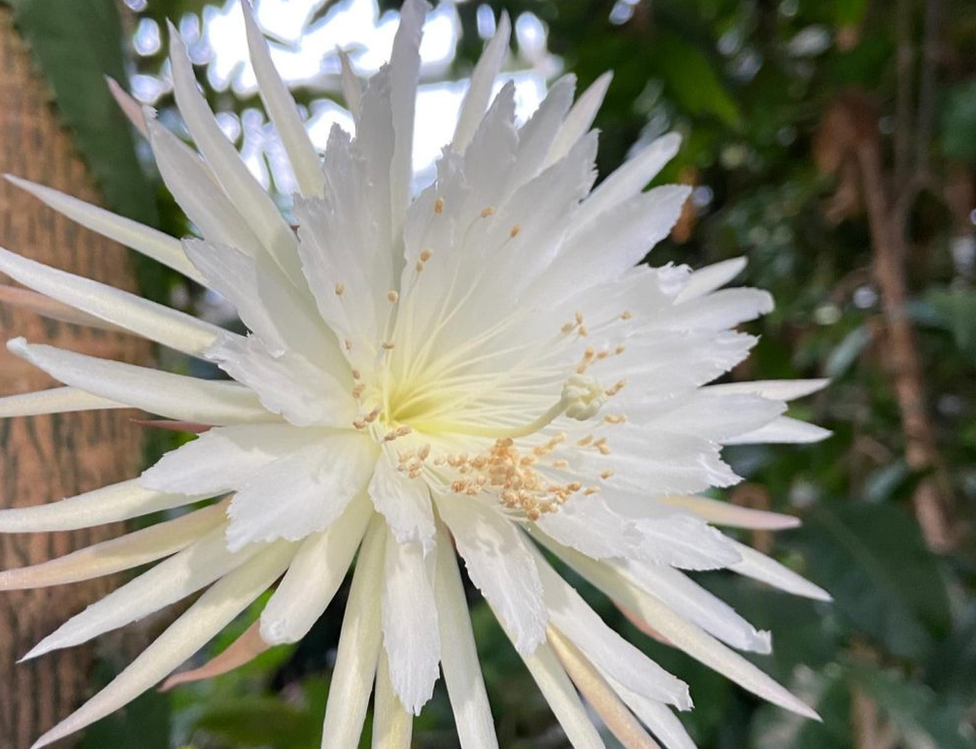
The moonflower first bloomed here in February 2021
While the moonflower is not rare in the wild, it is rare in cultivation, a botanic garden spokesperson said.
This species of Strophocactus is grown in just 16 botanic gardens worldwide.
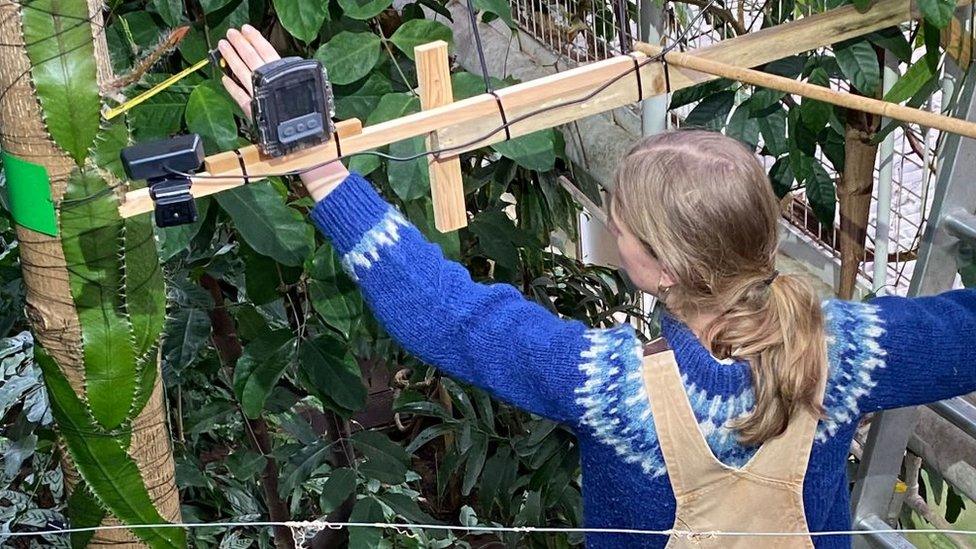
Kathryn Bray, senior horticulturist at CUBG, has been measuring the bud daily
The specimen was acquired from Bonn Botanic Garden in Germany in 2015 and was attached to a water chestnut tree, where it climbed 12ft (3.5m) above the ground in a glasshouse before putting out its first bud in 2021.
The Cambridge team was able to share some plant material with the Royal Botanic Gardens at Kew in 2022, so this plant is now one of two clones in the UK.
Kathryn Bray, senior horticulturist in Cambridge, said that although the common name of this flower is the moonflower "it is not to be confused with other flowering cacti which hold the same common name".
"The name moonflower is given to a lot of cacti, external which people often have flowering at home," she said.
"This does not mean though they are the same plant. Confusion like this is why we always use the Latin name for the plant.
"This plant - Strophocactus wittii - is definitely very rare in the UK and in botanic gardens in general, outside its native habitat in the Amazon, so it's important to always go by the Latin name."

Find BBC News: East of England on Facebook, external, Instagram, external and Twitter, external. If you have a story suggestion email eastofenglandnews@bbc.co.uk
- Published20 February 2021
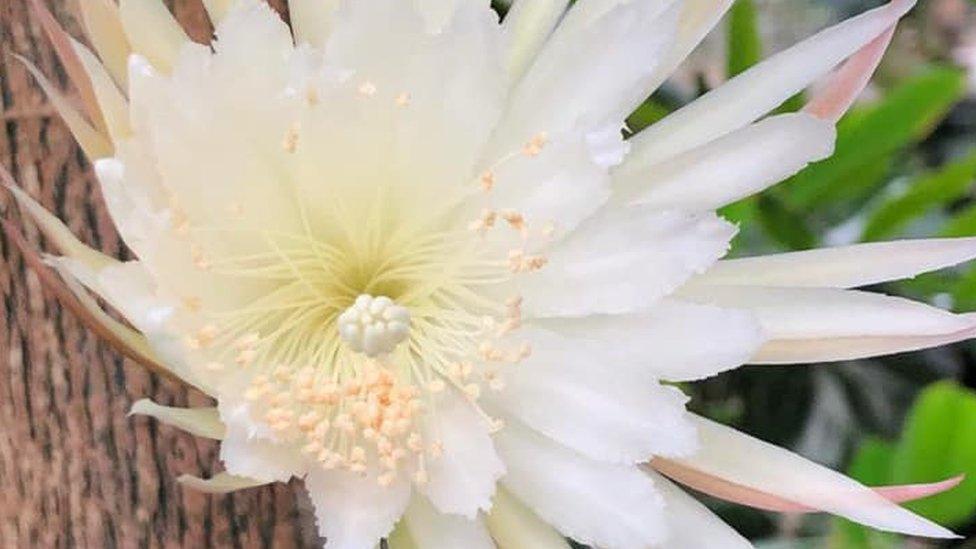
- Published20 February 2021
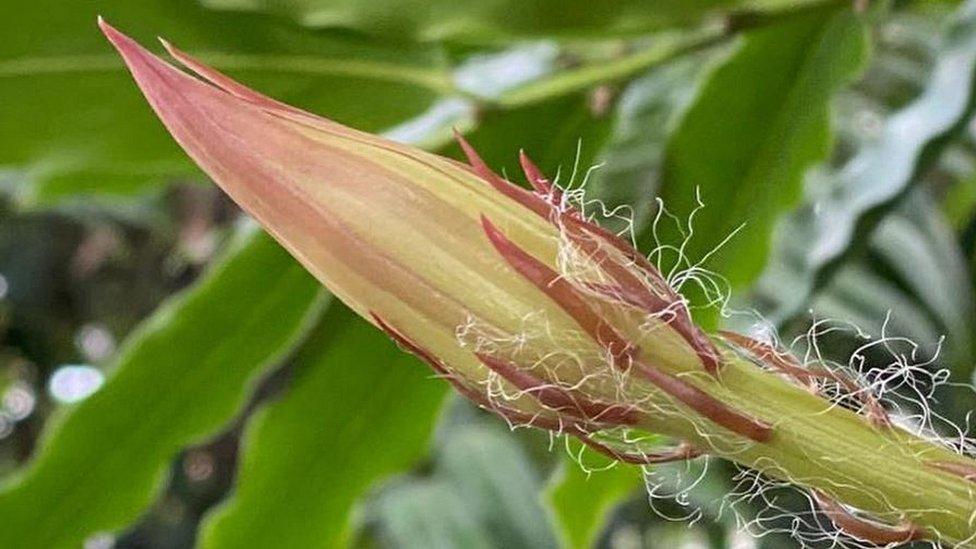
- Published11 February 2021
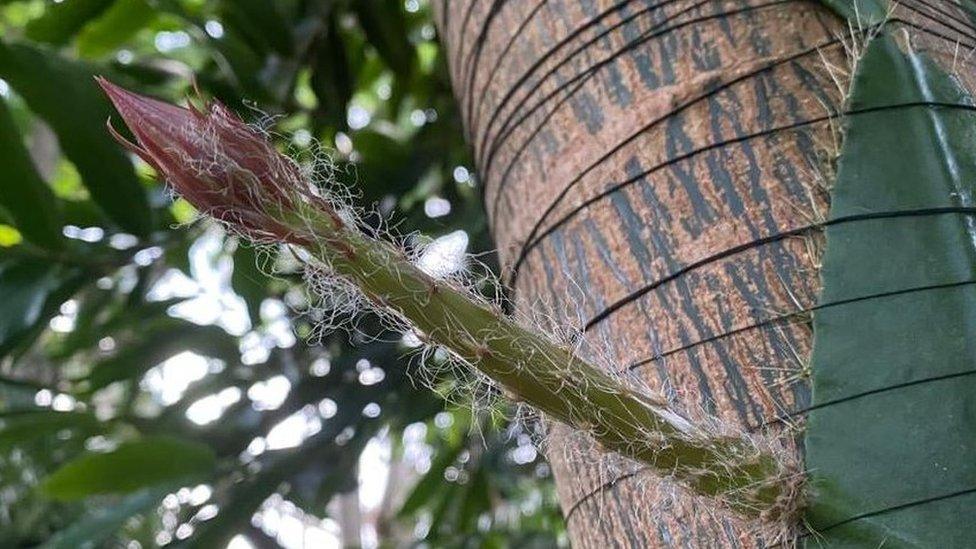
- Published10 September 2019
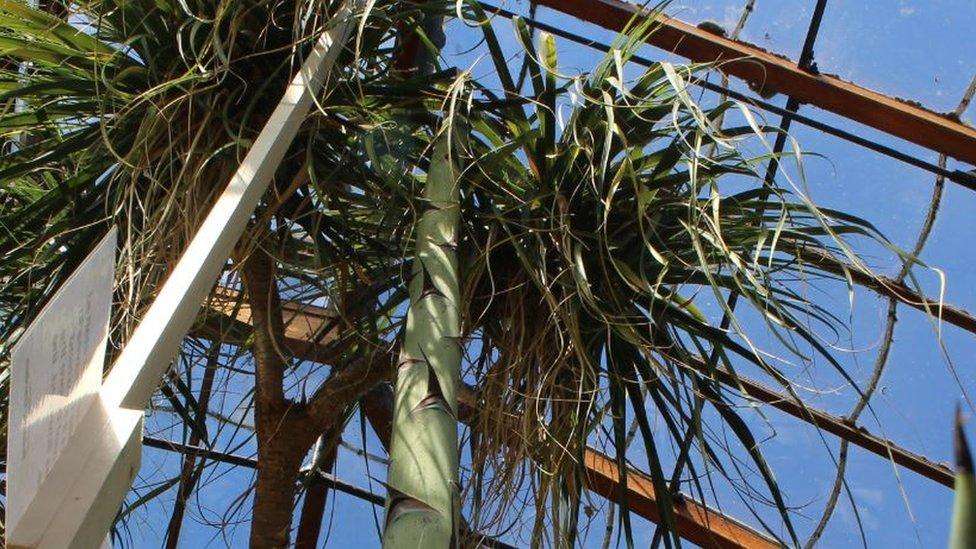
- Published26 June 2017
